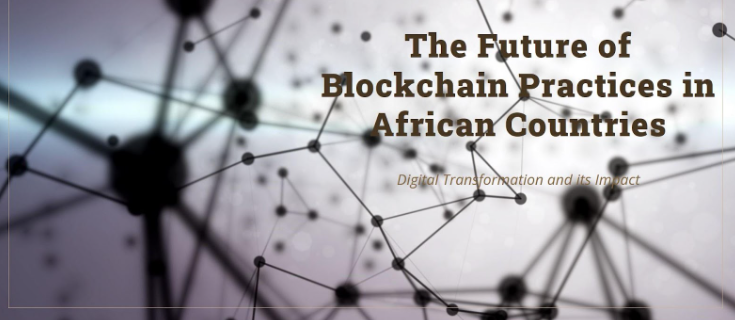By HariKrishna Kundariya
The use of blockchain practices has been rising in every industry. Today, every single industry is making the most out of it and making things easier for their audience to deal with it. If you are thinking how blockchain practices is going to get better with digital transformation, then you have landed on the right page.
Africa is at the cusp of a digital transformation revolution. Not only this, in this part of the world, blockchain is poised to catalyse unprecedented growth across different industries. With a median age of 19 years and rapid technology adoption, the continent is well-positioned to leapfrog legacy systems with decentralized solutions.
Here in this post, we are going to examine and discuss the key sectors in African countries that may evolve through blockchain using digital transformation. Let’s get going.
Overview of Africa’s Socio-economic Landscape
Africa’s over 1.3 billion people still face challenges around identity, access to basic services, and financial inclusion. However, the booming youth population, growing internet access (+90 million new users/year), and startup ecosystem offer promise. Local factors like currency devaluation, remittance costs (+10%), and lack of centralized infrastructure have spurred indigenous innovations using blockchain.
Some challenges that may drive adoption include:
- Lack of identity systems forcing 35% of the population outside formal economy
- High food wastage/spoilage due to inefficient supply chains
- 65% of the unbanked population is constrained by high service fees
- Inadequate property rights hindering access to financial services
But, these challenges can be jumped across through blockchain practices. If you are thinking about what this technology prospect is going to have in store for you, then the below segment can help you with all the clarity. Read on.
What Are the Possibilities of Evolution Through Blockchain?
Digital ID systems built on blockchain can give 1 billion+ Africans a verifiable digital identity enabling access to services. As one of the effective Finance App Ideas, Blockchain-based decentralized apps (Dapps) tailored for languages/cultures may help tackle socioeconomic pain points leveraging distributed networks. This provides opportunities across domains:
Agriculture and Supply Chain
Food supply inefficiencies result in losses of over $4 billion annually in Africa. Smart contracts powered by blockchain can help streamline tracking of goods from farm-to-table while enhancing transparency with immutable records. This may:
- Drive traceability through digitized provenance of goods managed by grower cooperatives
- Foster demand-driven production via direct farmer markets and payments
- Improve access to financing and insurance by reducing counterparty risk
- Slash inefficiencies of multiple intermediaries by empowering smallholder participation
- Enhance monitoring of soil/environmental conditions optimizing output
Financial Inclusion and Remittances
Cryptocurrencies and peer-to-peer (P2P) lending/borrowing platforms can help expand access in underbanked regions using distributed ledgers. For example:
- Mobile wallets enable cross-border funds transfer at lower prices than the 10% fee levied currently
- Digital assets like bonds/securities enable participation in capital markets
- Micropayments and community currencies drive financial activity in rural areas
- Smart contract-based lending cuts costs/time with automated assessments
- Interest and exchange rate derivatives hedge currency risks
- ICOs and security tokens raise capital for startups/SMEs bypassing centralized VCs
Healthcare
Inadequate medical records affect proper diagnosis and access to insurance. Blockchain applications can help address issues including:
- Immutable electronic health records enable universal access while preserving privacy
- Interoperability promoting data liquidity and targeted clinical research
- Automated smart contracts for social impact insurance/community schemes
- Supply chain optimization of vaccines/drugs reducing losses from fake medicines
- Telehealth network expansion with remote patient monitoring and diagnostics
Education
Digital learning infrastructure also lags in remote regions. Key blockchain applications may:
- Facilitate credential verification and academic record portability on decentralized networks
- Enable micro-scholarships and learning-for-work programs via smart contracts
- Drive efficiencies in online certification and e-learning through distributed ledgers
- Foster collaboration via decentralized knowledge marketplaces
Voting and Identity
About 35% of Africans lack any government-issued ID hindering access to services. Blockchain solutions can:
- Establish self-sovereign identity using biometrics, digital credentials on distributed ledgers
- Enhance voter participation and transparency in elections through cryptographically secure online/mobile voting
- Verify the integrity of ID systems in refugee camps/conflict zones hit by forgery
- Automate property, and birth/marriage registrations to strengthen land rights
Challenges and the Path Forward
While opportunities abound, successful adoption faces technology gaps like electricity/internet access in remote regions. Some other hurdles include:
- Limited technical expertise and awareness among governments and enterprises
- Underdeveloped regulatory frameworks around securities, AML and KYC for crypto exchanges
- Interoperability issues as platforms emerge in silos without uniform standards
- High power consumption of proof-of-work protocols conflicting with sustainability goals
To evolve practices sustainably, policymakers must incentivize startups tackling local problems through public-private partnerships. Adoption of renewable energy sources can help build eco-friendly infrastructure. As more use-cases emerge, region-specific frameworks are needed around data privacy, digital rights and cross-border transactions. Tailoring solutions around basic necessities can drive financial inclusion through grassroots digitization.
Final Thoughts
So, with nearly 60% of the world’s uncultivated arable land, Africa is poised for an agricultural revolution leveraging blockchain. Combined with a growing youth ecosystem and peer-to-peer innovation, decentralized technologies offer potentials unmatched anywhere to jumpstart financial inclusion and help achieve SDGs.
Proactive policies supporting innovation through inclusive networks can sustainably evolve practices across domains. This shows how digital transformation can evolve the blockchain practices in African countries and make a huge difference. Good luck!

Harikrishna Kundariya, a marketer, developer, IoT, ChatBot & Blockchain savvy, designer, co-founder, Director of eSparkBiz Technologies @Software Development Company. His 12+ experience enables him to provide digital solutions to new start-ups based on IoT and SaaS Application.

